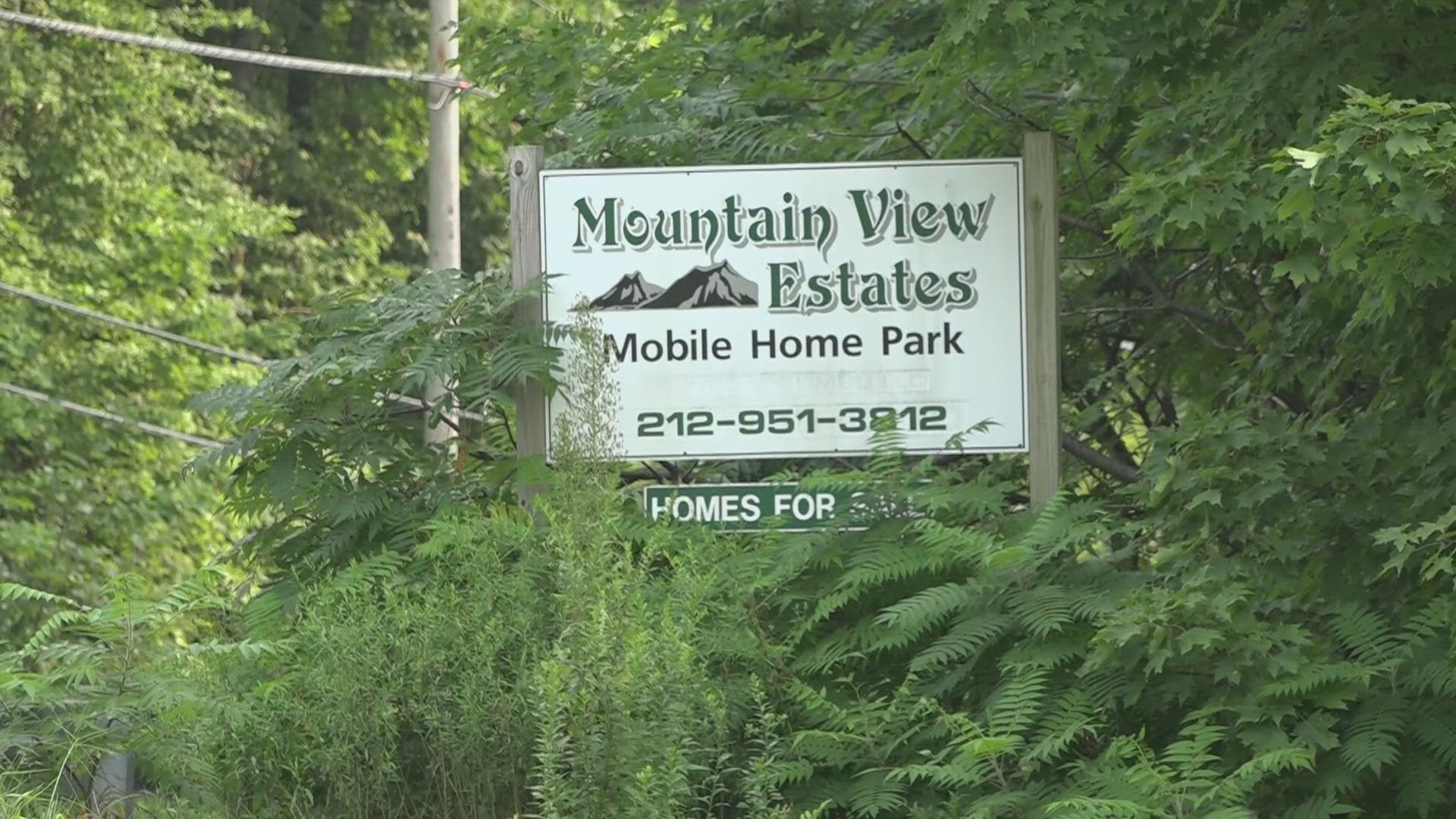BOWDOIN, Maine — As a shortage of housing in Maine has bumped up prices, mobile home parks are becoming fertile ground for out-of-state profiteering.
In Bowdoin, the company Philips International added the Mountain View Estates Mobile Home Park to its nationwide inventory in 2021. Since acquiring the 46-acre property, Philips has raised lot rent – the monthly fee for mobile homeowners to live on the land they use—four times.
For Jerry Highfill, an Air Force veteran who has owned his mobile home since 2001, there aren’t many options other than footing the bill. That monthly bill, though, has gone up $181 since 2021, when the previous owner was in charge.
“I’m too old to move. I don’t want to move. I will probably just pay it, close my eyes and find a way to pay it,” Highfill said.
But he said he may need to come out of retirement and find a job if rent increases even more.
Philips International argues the rent increases are simply to keep up with operational costs that have shot up recently. A spokesperson for the company cites an increase in insurance costs and property taxes as central to the decision.
“We have made every effort to keep rent increases manageable while ensuring that we can continue to provide essential services and maintain the quality of our facilities,” the spokesperson said.
But certain key expenses have, in fact, gone down for Philips International.
Tax records from the town of Bowdoin show the company, doing business as Maine MHP LLC owes thousands less in property tax this year over last year for its 46-acre property—a bill of $10,141 versus $14,234 in 2023.
And while other expenses may have increased, Highfill hasn’t noticed services improve—or even meet expectations—at the mobile home park.
“We’re not getting anything for it,” Highfill said. “I don’t feel that we should have to make up for their stupidity.”
Housing advocates in Maine see the behavior of Philips International and other companies as predatory and obstructive to generating wealth for tenants.
“People are really unable to build equity because the land that is underneath them belongs to someone else,” Cullen Ryan, with Community Housing of Maine, said Friday.
Beyond just denying wealth creation, Ryan worries that low-income tenants will be forced out of a home.
“There are a lot of people who are right on that edge," Ryan said. "People do fall out of those fragile circumstances into homelessness."
Overlooking a garden he has maintained for years, Highfill has a simple ask of the company that owns the land where he lives.
“I realize they got expenses, but how about leaving me a few bucks?”

